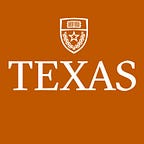“The Vietnam War”: Behind Every Great Documentary, There’s A Great Archive
UT’s Briscoe Center provides key images and documents for Ken Burns’ latest masterpiece.
The Vietnam War was a conflict that defined a generation and divided the country. In a new PBS documentary series, “The Vietnam War,” Oscar nominated documentary filmmaker Ken Burns and partner Lynn Novick unpack the conflict. The documentary is “visceral and immersive,” says PBS, no doubt due to the use of archival collections (including those at UT’s Briscoe Center for American History) that The Washington Post has described as “critical to the series.”
UT’s Briscoe Center is one of the top history research centers in the world. As Burns and Novick’s research team found out, it’s a place rich in resources for studying the Vietnam War — particularly its collections of photojournalism, news media history, and congressional and political history.
Photojournalism
Burns and Novick’s team did extensive research in the center’s photojournalism collections. The documentary used numerous images from the Dirck Halstead, Steve Northup and Eddie Adams photographic archives.
News Media History
Burns and Novick used images in the center’s Walter Cronkite papers. News media reports from the field played a major role in shaping the American public’s perception of the war. The Briscoe Center’s collections include the papers of CBS News correspondents Morley Safer and Bruce Morton, as well as many producers including Jay McMullen and Joseph Wershba.
Congressional and Political Collections
The center holds a large collection of political papers including congressional correspondence, policy statements, confidential dossiers, constituent newsletters and media reports. Together they document the widespread initial support for the military buildup in Vietnam, as well as the increasing concern and calls for withdrawal as the war stretched on.
In addition to the papers of Sen. Ralph Yarborough and Reps. Jack Brooks and Henry B. Gonzalez, the papers of Harry McPherson are particularly revealing. McPherson was a special adviser to President Lyndon Johnson from 1965 to 1969. He played a significant role in one of the war’s pivotal moments, drafting the speech Johnson gave on March 31, 1968, announcing a halt in the bombing in North Vietnam and that he would not run for re-election.
Oral History
The Briscoe Center holds oral histories of Americans and Vietnamese affected by the war. They include Gerald Nicosia’s Home to War/Vietnam Veterans Archive, which contains hundreds of tape and video recordings, as well as more than 20,000 pages of transcribed interviews with veterans. It also holds the Vietnamese Immigrants Oral History Collection of 49 oral history interviews from people who immigrated to the Texas Gulf Coast from Vietnam after the war.
Visiting the Briscoe Center
The center’s collections supply students and scholars with many avenues for exploring the war. These collections can be accessed by students every day from 10 a.m. to 5 p.m. in the center’s newly renovated Reading Room in Sid Richardson Hall Unit 2. Visiting the center is easy: Stop by, speak to a member of the reference staff, identify the collection you want to look through, take a seat, and a staff member will bring the relevant box to your desk. Archival collections contain the raw materials of historical research. They enable students to access the who, what, when and where of history — so you can work out the why.
[[Go here for a full list of Vietnam Materials at the Briscoe Center.]]
Originally published at news.utexas.edu on October 9, 2017.
